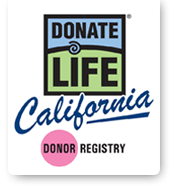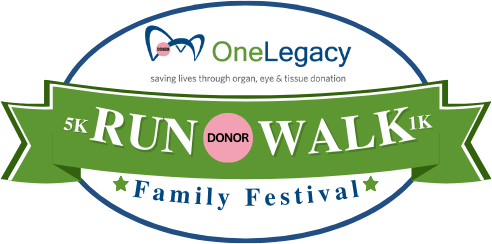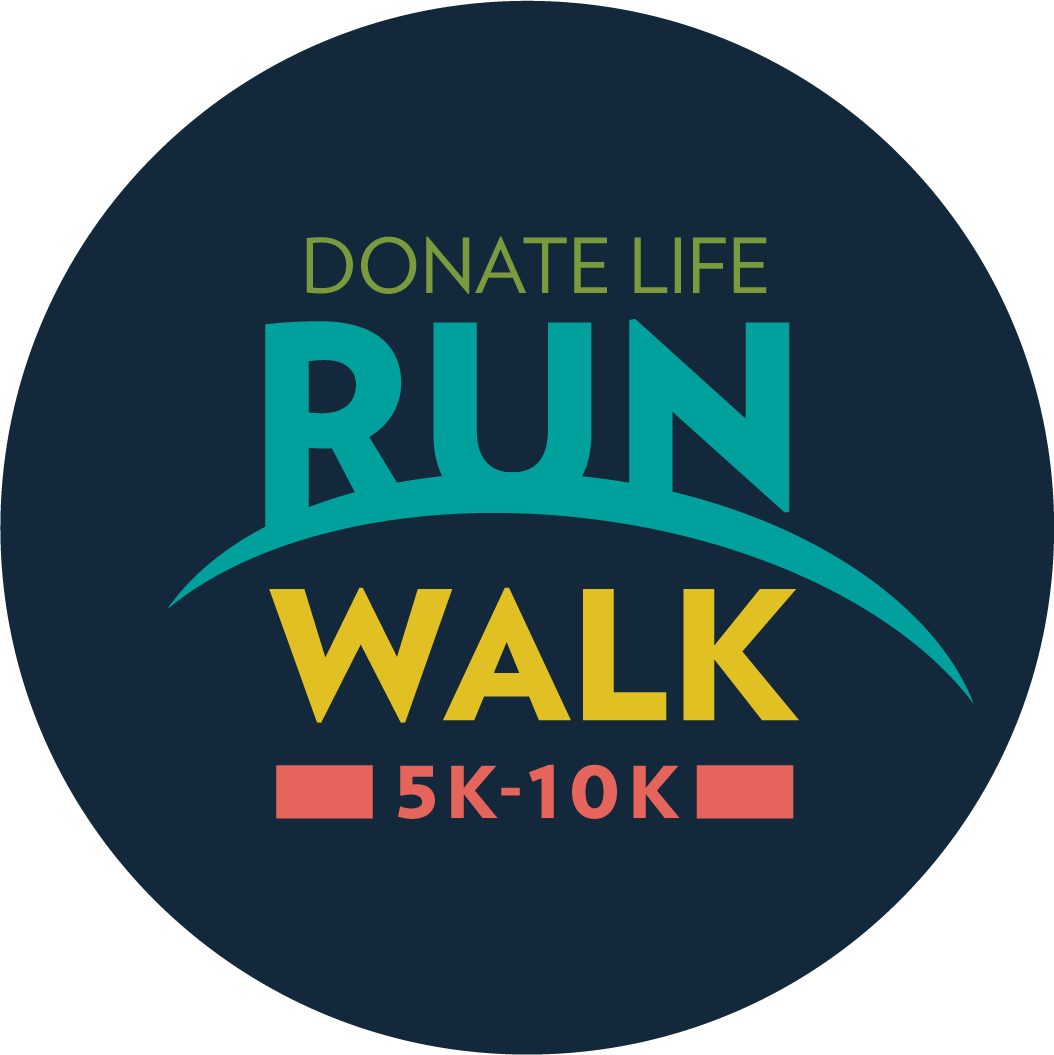Observed annually from September 15 – October 15, National Hispanic Heritage Month is a great time to celebrate and honor the generosity of Hispanic donors and their families, while also underscoring the critical need for people from this diverse community to register as organ, eye and tissue donors. In California 1,791 Hispanics received organ transplants in 2020. Myths regarding donation continue to be major barriers preventing many Hispanics from becoming registered donors. During Hispanic Heritage Month, Donate Life California joins the national Donate Life community in providing facts and educating people about the life-saving and healing benefits of donation to encourage them to Donate LifeSM.
STORIES OF HOPE
 Alfonso Garcia should have been training to be a boxer. Instead, as he lay in the hospital, the Northern California high school student told his father he wanted a priest to read him his last rites. A previously undiscovered genetic disorder caused Alfonso’s liver to suddenly shut down. Without a liver transplant, he would likely die in days. He needed a miracle. Read more…
Alfonso Garcia should have been training to be a boxer. Instead, as he lay in the hospital, the Northern California high school student told his father he wanted a priest to read him his last rites. A previously undiscovered genetic disorder caused Alfonso’s liver to suddenly shut down. Without a liver transplant, he would likely die in days. He needed a miracle. Read more…
 Michael Robles was a family man known for his yard work, the flower arrangements he bought at the local flower shop (the florists knew him by name), and for being one of the first in the small town of Delano to own a Harley Davidson Motorcycle. When his granddaughter was born, he took on a fatherly role – doting on her, making sure she was cared for and her needs were met. His passing of a sudden heart attack at the age of 53 left a void in his close, loving family. But, despite their grief, they didn’t hesitate to say “YES!” when asked about organ donation. Read more…
Michael Robles was a family man known for his yard work, the flower arrangements he bought at the local flower shop (the florists knew him by name), and for being one of the first in the small town of Delano to own a Harley Davidson Motorcycle. When his granddaughter was born, he took on a fatherly role – doting on her, making sure she was cared for and her needs were met. His passing of a sudden heart attack at the age of 53 left a void in his close, loving family. But, despite their grief, they didn’t hesitate to say “YES!” when asked about organ donation. Read more…
ACT NOW
1. If you haven’t already, register with the Donate Life California Organ & Tissue Donor Registry. If you don’t live in California, sign up here.
2. Start an eCampaign to encourage your friends and family to sign up as organ & tissue donors.
3. Share our Fast Facts and/or FAQs with your family and friends who have questions about organ, eye and tissue donation.
4. Shop at AmazonSmile to support Donate Life California’s education and outreach efforts in our state. Each time you shop, AmazonSmile donates a portion of your total to Donate Life California at no extra cost to you. It’s like making a FREE donation!
THE WAITING LIST*
- With more than 1000,000 people on the transplant waiting list. Over 20,000 of them live in California.
- 44 percent of the Californians waiting are Hispanic.
- Many thousands more could benefit from tissue transplants to restore their health, mobility and sight.
- As of September 2021, 30 percent of deceased organ donors were Hispanic.
- Hispanics, like other minorities, have the best chance of a successful organ transplant if the donor is of the same ethnic background.
BY THE NUMBERS*
- Over 4,000 Californians began new lives in 2020 thanks to organ transplants.
- Sadly, an average of 18 patients die every day while waiting for a transplant, simply because the organ they need does not become available in time.
DID YOU KNOW?
- Anyone can be a potential donor, regardless of age or medical history.
- A single donor can save or heal the lives of more than 75 people through organ, eye and tissue donation.
- Every major religion in the United States supports organ, eye and tissue donation as one of the highest expressions of compassion and generosity. Pope Francis describes the act of organ donation as “a testimony of love for our neighbor.” Click here to read about what other religions say about organ donation.
- There is no cost to the donor’s family or estate.
- An open casket funeral is possible for organ, eye and tissue donors.
* Statistics from Organ Procurement and Transplantation Network
FREQUENTLY ASKED QUESTIONS
-
Why focus on organ, eye and tissue donation for National Hispanic Heritage Month?
+
- in 2020 the lives of more than 1,791 Hispanics in California were saved last year through organ donation and transplantation. Many thousands more restored their sight, health and mobility through cornea or tissue transplants. National Hispanic Heritage Month is the perfect time to celebrate the recipients and honor the donors who made their transplants possible through their decision to Donate LifeSM.
-
Why is it important for Hispanics to become donors?
+
- Hispanics, like other minorities, are three times more likely than Caucasians to suffer from end-stage renal failure and diabetes.
- Tragically, every 10 minutes another patient is added to the waiting list and 18 people die each day due to lack of organs.
-
Is there a greater need for any particular organ among Hispanics?
+
- Currently, 8,173 Hispanics in California are waiting for kidney transplants. For these patients, the lack of available organs means longer waiting periods on transplant lists, years spent on dialysis and sometimes death.
-
How much does it cost to be a donor?
+
- There is no cost to the donor’s family or estate.
-
What are the benefits of being an organ, eye and tissue donor?
+
- According to the United Network for Organ Sharing, “successful transplantation often is enhanced by the matching of organs between members of the same ethnic and racial group. For example, any patient is less likely to reject a kidney if it is donated by an individual who is genetically similar. Generally, people are genetically more similar to people of their own ethnicity or race than to people of other races.”
- Knowing that you have the power to give someone else a chance to live a healthy productive life is the greatest gift of all.
- A single donor can save or heal the lives of more than 50 people.
- Donation is a consolation to the donor family knowing that their loved one helped to save and heal the lives of others.
-
Am I too old (or too young) to donate?
+
- There is no age limit for organ and tissue donation. Anyone age 13 or older can register online at any time, although the final decision is that of the legal guardian(s) until age 18. Conversely, no one should rule themselves out because they are “too old”. There has been a 93-year-old kidney donor and a 99-year-old cornea donor!
-
Does the church support organ, eye and tissue donation?
+
- Every major religion in the United States support organ, eye and tissue donation as one of the highest expressions of compassion and generosity. You can find specific information about your religion here.
-
How can I become an organ, eye and tissue donor?
+
- Sign up on your state donor registry. For California, go to www.donateLIFEcalifornia.org. For other state registries, visit www.donatelife.net/register-now and click on your state.
- Always remember, it is important to tell your family members that you have decided to become a donor so that they will understand and support your decision.
-
Is it true that doctors don’t work as hard to save the life of someone who has indicated his/her wish to become a donor?
+
- No. Your commitment to donation will NOT interfere with your medical care. If you are sick or injured and admitted to the hospital, the number one priority is to save YOUR life.
-
Can organ, eye and tissue donors have normal funerals?
+
- Yes. Donation should not delay or change funeral arrangements. A donor can have an open casket funeral.
-
Is it true that rich people and celebrities get preferential treatment when it comes to getting a donor organ?
+
- No. When you are on the transplant waiting list for a donor organ, what really counts is the severity of your illness, time spent waiting, blood type and other important medical information.
- One’s celebrity status does not play a part in the decision. The transplant waiting list is “blind” to ethnicity, gender, and connections.
- When a celebrity needs an organ, it tends to get more attention from the media, so it may seem like they are getting special consideration. However, they have been placed on the waiting list like everyone else.
-
What are the benefits of being an organ, eye and tissue donor?
+
- According to the United Network for Organ Sharing, “successful transplantation often is enhanced by the matching of organs between members of the same ethnic and racial group. For example, any patient is less likely to reject a kidney if it is donated by an individual who is genetically similar. Generally, people are genetically more similar to people of their own ethnicity or race than to people of other races.”
- Knowing that you have the power to give someone else a chance to live a healthy productive life is the greatest gift of all.
- A single donor can save or heal the lives of more than 50 people.
- Donation is a consolation to the donor family knowing that their loved one helped to save and heal the lives of others.
-
What can I do to increase organ, eye and tissue donation in my community??
+
- Tell family and friends about your decision to Donate Life. Ask them to get the facts, and consider registering as a donor here. To register in other states, go to www.donatelife.net.
- For information in Spanish, visit www.doneVIDAcalifornia.org or www.donevida.org.
- Visit our Spread the Word page and download resources to share on your social media profiles and tools to use in your community.







